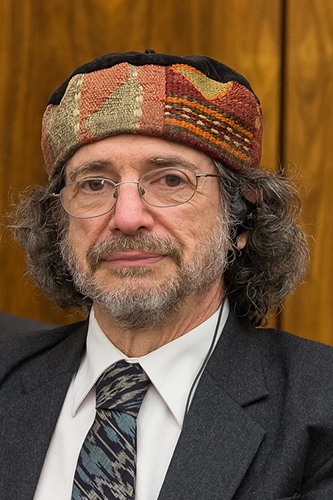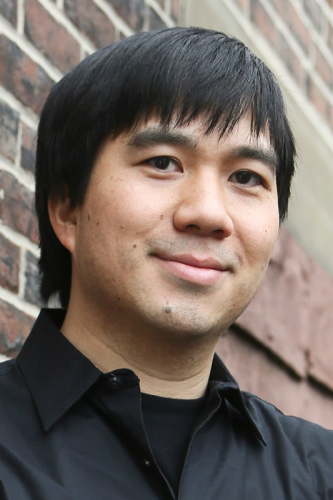The program’s distinctively flexible curriculum permits students to sample liberally from departmental graduate seminars, and also encourages them to explore course offerings in other academic units. Students begin learning about the methods and materials of music studies with core seminars in ethnomusicology and historiography, while creating individually tailored programs of further study that suit their scholarly and professional needs. This might mean developing fluency in textual analysis, ethnography, historiography, critical theory, and science and technology studies, all of which fall within the program’s inclusive approach to the study of music and sound.
Musicology & Ethnomusicology
Diverse Possibilities
The smaller size of the program facilitates close mentoring relationships with the faculty, allowing students to receive guidance about their research from scholars with a variety of interests and approaches. Recent dissertations have explored such diverse matters as Afrocentric consciousness in Brazilian capoeira, carnival performance in mixed-race South African communities, Scandinavian white nationalism, and Turkish intellectual property law. Faculty interests and seminar offerings range across fields like critical organology, ecocriticism, improvisation studies, intellectual property, sound studies, technoculture, and transnationalism. Students also have the option of taking courses within the music department’s outstanding Ph.D. program in Music and Multimedia Composition, of developing performing skills in several ensembles, and of engaging with campus entities like the Cogut Institute for the Humanities or the Brown Arts Initiative. A Brown doctoral degree in musicology and ethnomusicology leads to a career in college and university teaching, or to a position in applied work outside the academy.
Funding
All PhD students receive full funding for 6 years, including costs for tuition and health insurance, plus stipends for fellowships and teaching assistantships.
Contact
Completion Requirements
A.M.: Eight courses, including MUSC 2000: Theory & Method in Ethnomusicology; MUSC 2080E: Historiography of Music and the Performing Arts; one course credit in music performance; one half-credit professional development course; and four additional elective courses to be determined in consultation with the advisor. The A.M. also requires reading knowledge of one foreign language and completion of one major research paper (normally based on fieldwork).
Students entering the program without the A.M. earn that degree as part of their progress toward the Ph.D. We do not normally encourage applicants who seek the A.M. as a terminal degree.
Ph.D.: All of the eight courses required for the A.M.; three courses from MUSC2080 or 2090; a half-credit writing seminar, focused on preparation for qualifying exams; additional elective courses (for a total of at least 18 course credits over three years of A.M./Ph.D. coursework); written and oral comprehensive examinations; dissertation.
Admission Information
Writing Sample: Required (c. 20-25 pages, in area of interest)
GRE General: Not Required
GRE Subject: Not Required
Application Deadline: December 15
Apply
Apply to the Musicology & Ethnomusicology program through the Brown University Graduate School website.
Apply
Faculty
Affiliated Faculty
-
Damien Mahiet
Director of Academic Programs, Cogut Institute for the Humanities, Lecturer in Humanities -
Peter Szendy
David Herlihy Professor of Humanities and Comparative Literature






